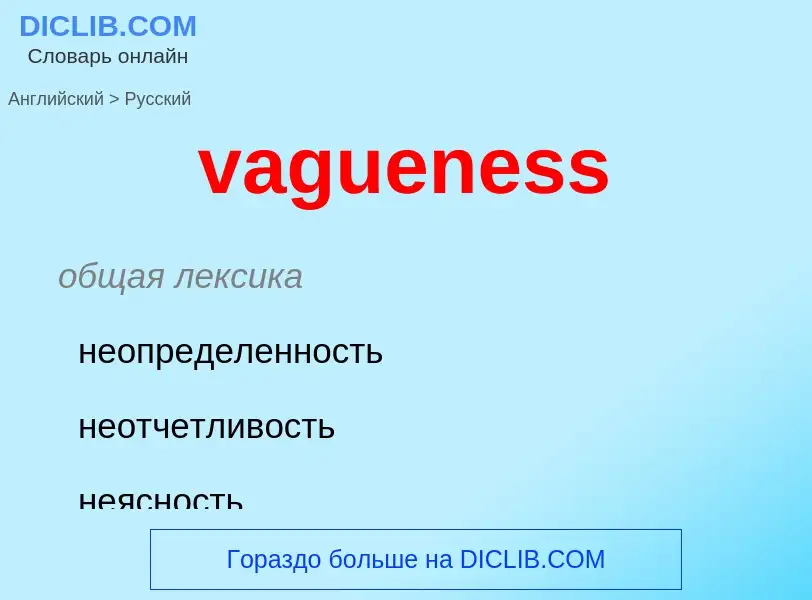Traducción y análisis de palabras por inteligencia artificial ChatGPT
En esta página puede obtener un análisis detallado de una palabra o frase, producido utilizando la mejor tecnología de inteligencia artificial hasta la fecha:
- cómo se usa la palabra
- frecuencia de uso
- se utiliza con más frecuencia en el habla oral o escrita
- opciones de traducción
- ejemplos de uso (varias frases con traducción)
- etimología
vagueness - traducción al ruso
общая лексика
неопределенность
неотчетливость
неясность
туманность
существительное
общая лексика
неопределенность
[veig]
общая лексика
неясный
нечёткий
неопределённый (напр. о признаке)
маниловский
неопределенный
неотчетливый
расплывчатый
смутный
туманный
Смотрите также
прилагательное
общая лексика
неопределённый
туманный
нечёткий
неясный
смутный
рассеянный
невыразительный
отсутствующий (о взгляде)
неясно очерченный
неопределенный, неясный, смутный
неуловимый
отсутствующий (о взгляде и т. п.)
синоним
антоним
существительное
[veig]
общая лексика
неопределённость
Wikipedia
In linguistics and philosophy, a vague predicate is one which gives rise to borderline cases. For example, the English adjective "tall" is vague since it is not clearly true or false for someone of middling height. By contrast, the word "prime" is not vague since every number is definitively either prime or not. Vagueness is commonly diagnosed by a predicate's ability to give rise to the Sorites paradox. Vagueness is separate from ambiguity, in which an expression has multiple denotations. For instance the word "bank" is ambiguous since it can refer either to a river bank or to a financial institution, but there are no borderline cases between both interpretations.
Vagueness is a major topic of research in philosophical logic, where it serves as a potential challenge to classical logic. Work in formal semantics has sought to provide a compositional semantics for vague expressions in natural language. Work in philosophy of language has addressed implications of vagueness for the theory of meaning, while metaphysicians have considered whether reality itself is vague.

